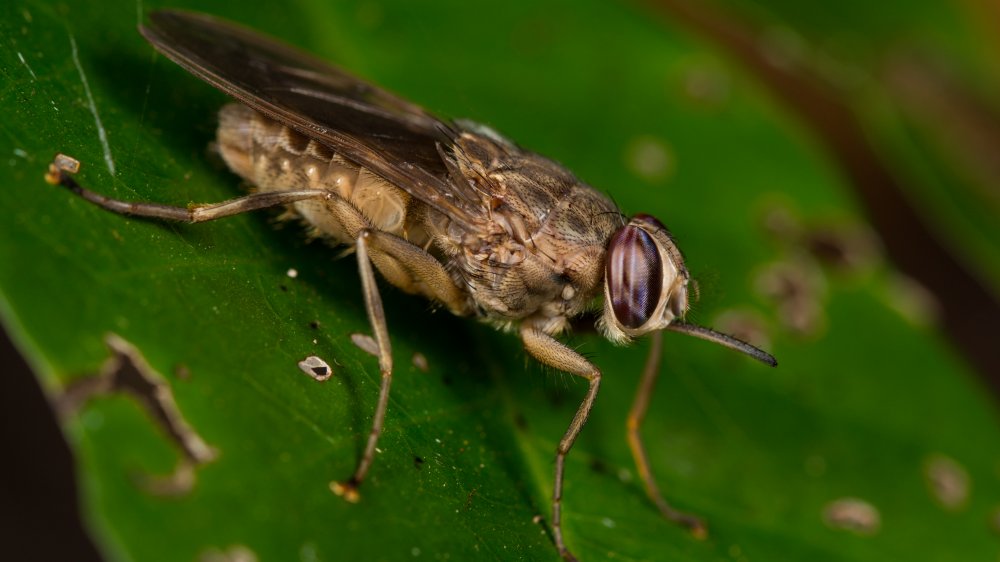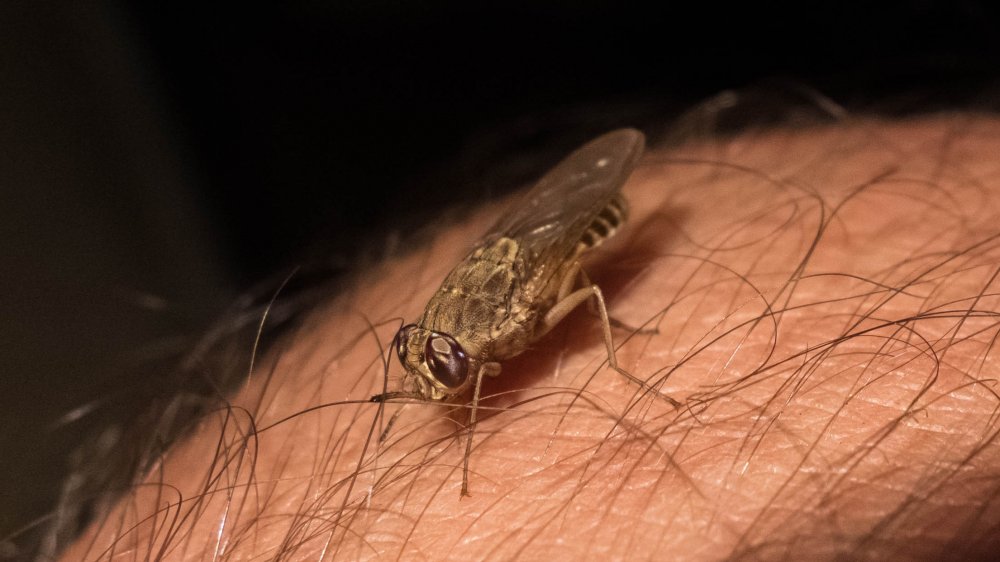The Truth About The World's Most Dangerous Fly
Remember the nursery rhyme about the old lady who swallowed a fly and then washed it down with a succession of increasingly large animals that were each meant to catch the previous creature she swallowed? Even though she wolfed down a dog, a cow, and even horse, almost every description of her unorthodox attempts at intestinal pest control ended with, "I dunno why she swallowed that fly. Perhaps she'll die." One version of the rhyme implies the horse killed her, presumably by kicking her gut bucket. But if the old lady could swallow a whole farm of animals, why worry that a tiny fly would kill her?
It turns out that flies are horrifying proof that big things come in small packages. For example, The Atlantic points out that fruit flies have sperm 20 times longer than their bodies, further noting that "if a man produced sperm that big, it would stretch diagonally across a basketball court." The sheer grossness of that fact alone might kill an old lady who swallowed a fruit fly (Just remember that the next time you watch Jeff Goldblum in The Fly). But giant fly sperm isn't the biggest reason to think a little winged pest could fatally screw you. If a tsetse fly swallowed the old lady's blood, it might put her to sleep like a grim nursery rhyme.
I don't know why the fly swallowed you; perhaps you're doomed
In a contest to crown the world's deadliest little critters, mosquitoes would win hands-down. But if you restrict the category to animals that old ladies swallow, the tsetse fly is the killer queen. Though, you could also call it the goodnight king because, as the BBC describes, these pests spread sleeping sickness. These flies reside in western Africa, and several species carry the parasites responsible for this "deathly sleep." One of those parasites, T. b. Gambiense, is responsible for 95 percent of all instances of sleeping sickness.
Unlike mosquitoes, which can stealthily stab you with their mouths to feast on your juices, the not-so-subtle "tsetse fly's mouth has tiny serrations on it that saw into your skin on its way to suck out your blood," per the BBC. A bite leads to fever, aches, and fatigue. A sufferer might die within months. Unfortunately, people immune to the illness tend to be more susceptible to kidney disease, which, much like the tsetse fly, really sucks.

